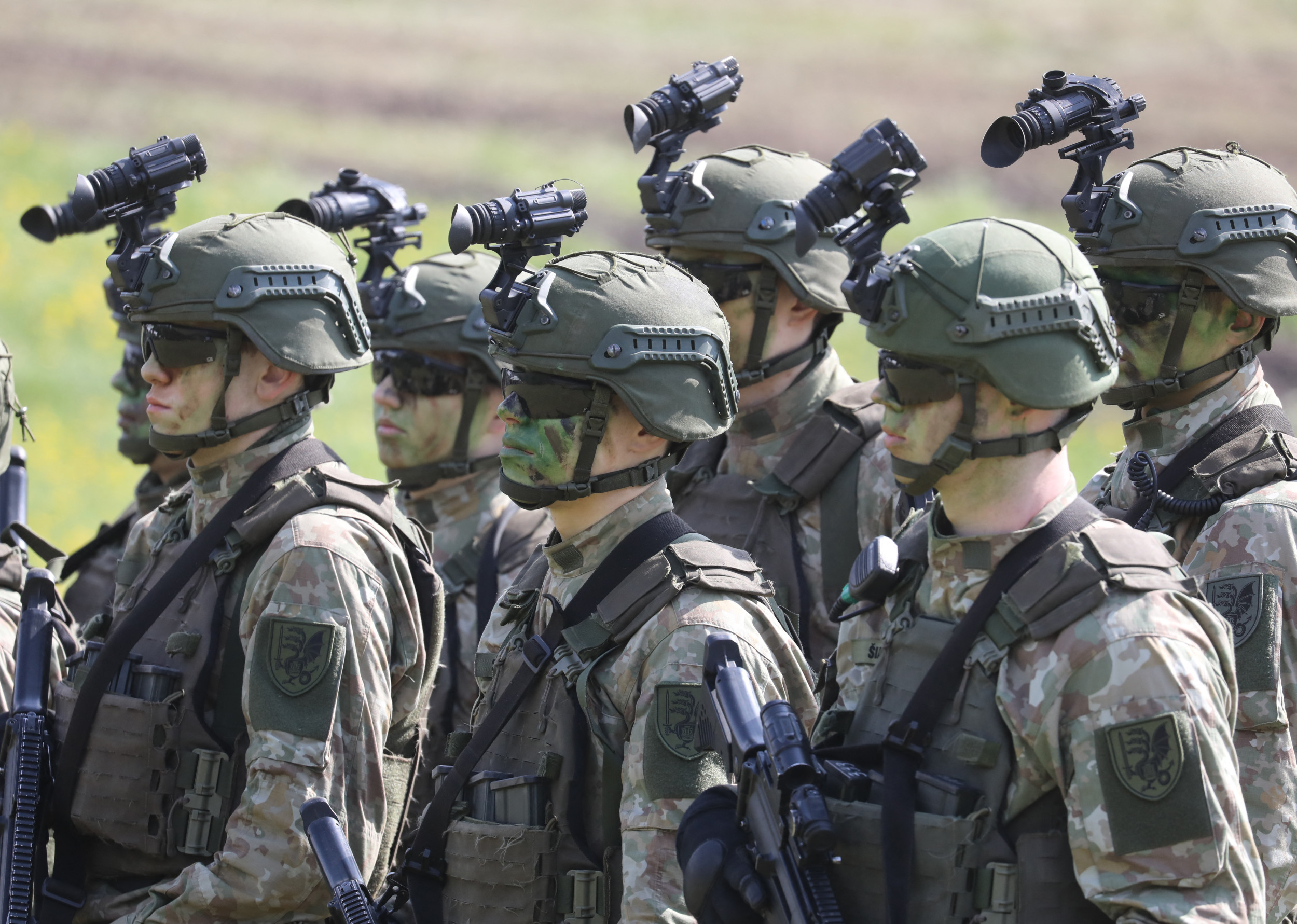One issue the new Biden administration is examining is U.S. support for Saudi Arabia and, by extension, the war in Yemen. This controversial conflict has seen suffering in Yemen, as that country is divided between Iranian-backed Houthi rebels and the Riyadh-backed government. However, the war in Yemen is not just a conflict confined to the Arabian peninsula—it is also one that impacts the broader region. As if to underpin that fact, a drone was reportedly intercepted near Riyadh on January 23. The U.S. has backed Saudi Arabia's right to defend itself against such provocations, but the top defense priority now remains how to stop the proliferating drone threats across the Middle East.
The U.S. could also be considering deployment to the Gulf of Iron Dome batteries acquired from Israel. Among the threats these batteries defend against are drones, and Iran has used drones to attack Saudi Arabia and threaten Israel and other U.S. allies. Iran has also reportedly positioned new armed drones in Yemen that could reach Israel. On January 23, the Israel Defense Forces said in a statement that Israel intercepted a drone that crossed from Lebanon into Israeli airspace. It is the fourth incident of this type in just one year.
Not much is known about the recent drone infiltrations from Lebanon. However, in past wars, Hezbollah has tried to use Iranian drone technology against Israel. The group has different types of drones, mostly used for surveillance. Iran has also supplied drones to its allies in Syria. In February 2018, a drone flew from a hangar at T-4 airbase near Palmyra in Syria into Israeli airspace.

The rise of the drone threats across the Middle East is part of an arms race that increasingly pits countries like Iran and armed groups it supports against the U.S. and its allies. In addition, China, Russia and Turkey are pioneering new drones. China has pursued drone sales to U.S. allies, from Jordan to Egypt to the Gulf states. As part of the Trump administration's last days in office, it advanced the sale of 18 advanced MQ-9B Reaper drones to Abu Dhabi. These are the armed drones that the U.S. has used in Iraq, Syria and Afghanistan, as well as in clandestine battlefields in Somalia and Yemen. This could usher in a new era of the U.S. competing with the Chinese for Middle East drone sales.
The most recent conflicts in the region, such as Azerbaijan's clashes with Armenia in September and October, highlighted the efficacy of what an army using drones can do against an opponent on the battlefield. Military and defense experts I've spoke to, from Israel to the U.K. to the U.S., agreed that these recent clashes have shown why drones are important—and also the threats they pose.
Why does this matter for the region today? Because drones in the hands of terror groups like Hezbollah or Hamas, or other Iranian-backed groups like the Houthis, can wreak havoc. Air defense systems are rushing to catch up. Israeli technology such as Iron Dome can be part of the answer, but covering large swaths of territory requires a large number of integrated and multi-layered defense systems.
It is important, as the new U.S. administration settles in and looks at foreign policy, that it take into account the need to beef up support for counter-drone technology and work with partners on examining these growing threats. Congress already advanced support in 2018 for working with Israel on countering drone threats. Technology has expanded rapidly since then, with new types of drone-swarming technology and new lasers, microwave weapons and radar that can hunt down drones. This might all sound a bit more like Star Wars than what we think of as conventional terror groups in the Middle East threatening friends and allies. But today's battlefield, even against terror groups, requires more technology from futuristic movies, and less in the way of old-fashioned bombs and rifles.
Seth J. Frantzman is executive director of the Middle East Center for Reporting and Analysis, a senior analyst of Middle East affairs for The Jerusalem Post and author of Drone Wars: Pioneers, Killing Machines, Artificial Intelligence and the Battle for the Future (Forthcoming June 2021). Twitter: @sfrantzman.
The views expressed in this article are the writer's own.
Uncommon Knowledge
Newsweek is committed to challenging conventional wisdom and finding connections in the search for common ground.
Newsweek is committed to challenging conventional wisdom and finding connections in the search for common ground.
About the writer
To read how Newsweek uses AI as a newsroom tool, Click here.





